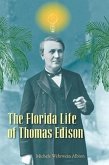Thomas S. Kuhn wrote The Structure of Scientific Revolutions, one of the most influential books of the 20th century, a work which sold more than a million copies, changed the way we think about the evolution of ideas--especially scientific ideas--and raised doubts about the long-term survival of even our most cherished scientific concepts. In The Death of Truth, Keay Davidson paints a vivid picture of Kuhn's troubled career and personal life, as well as a vibrant account of the intellectual and cultural climate in which Kuhn worked. Drawing on direct access to family members and colleagues as well as his subject's private papers, Davidson sheds light on Kuhn's personal life, including the brilliant family eccentrics who influenced his work; his troubled emotional and family life; his oft-combative relations with colleagues and critics; and his maddeningly erratic comments on the shocking implications of his theories. The book also provides an engaging picture of the intellectual and cultural world in which Kuhn's ideas evolved, including the nasty battles over logical positivism and the widespread disillusionment with science during an era of high-tech war, nuclear weapons, environmental ruin, and ruthless industrial globalization. Along the way, Davidson ranges from the battlefields of World War II to the academic squabbles of Harvard, Berkeley, Princeton, and MIT, and offers fascinating glimpses of eminent thinkers such as Kuhn's famous foe Karl Popper, philosopher Ludwig Wittgenstein, positivist crusader A.J. Ayer, the flamboyant "anarchist" Paul K. Feyerabend, and many others. The Death of Truth is the first full-length portrait of a truly revolutionary thinker--a strange, troubled man who abandoned a brilliant career to challenge science's most dogmatic assumptions.
Hinweis: Dieser Artikel kann nur an eine deutsche Lieferadresse ausgeliefert werden.
Hinweis: Dieser Artikel kann nur an eine deutsche Lieferadresse ausgeliefert werden.








